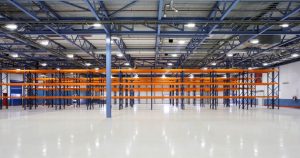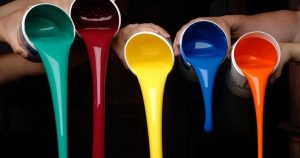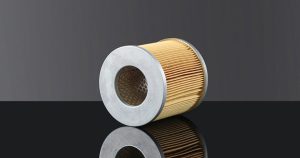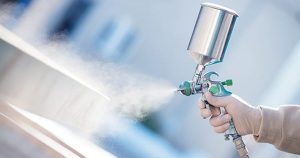
Coatings
Adhesive and coating systems
Polyurethane coatings exhibit excellent corrosion resistance. These coatings can be applied over other coatings as a corrosion-resistant layer or as a barrier, impact-resistant layer, or insulator. They can be applied in any thickness and on various surfaces. Additionally, these coatings provide good resistance in different environmental conditions, including UV radiation, high temperatures, acid rain, and saltwater. In other words, this coating gives the underlying surfaces scratch and impact resistance, enhancing their mechanical properties. These coatings can be transparent, glossy, or matte and are offered as a two-component system by Imen Polymer Chemie company.
Related Products
Imen Polymer Chemie
Some of our latest


What are aliphatic isocyanates?
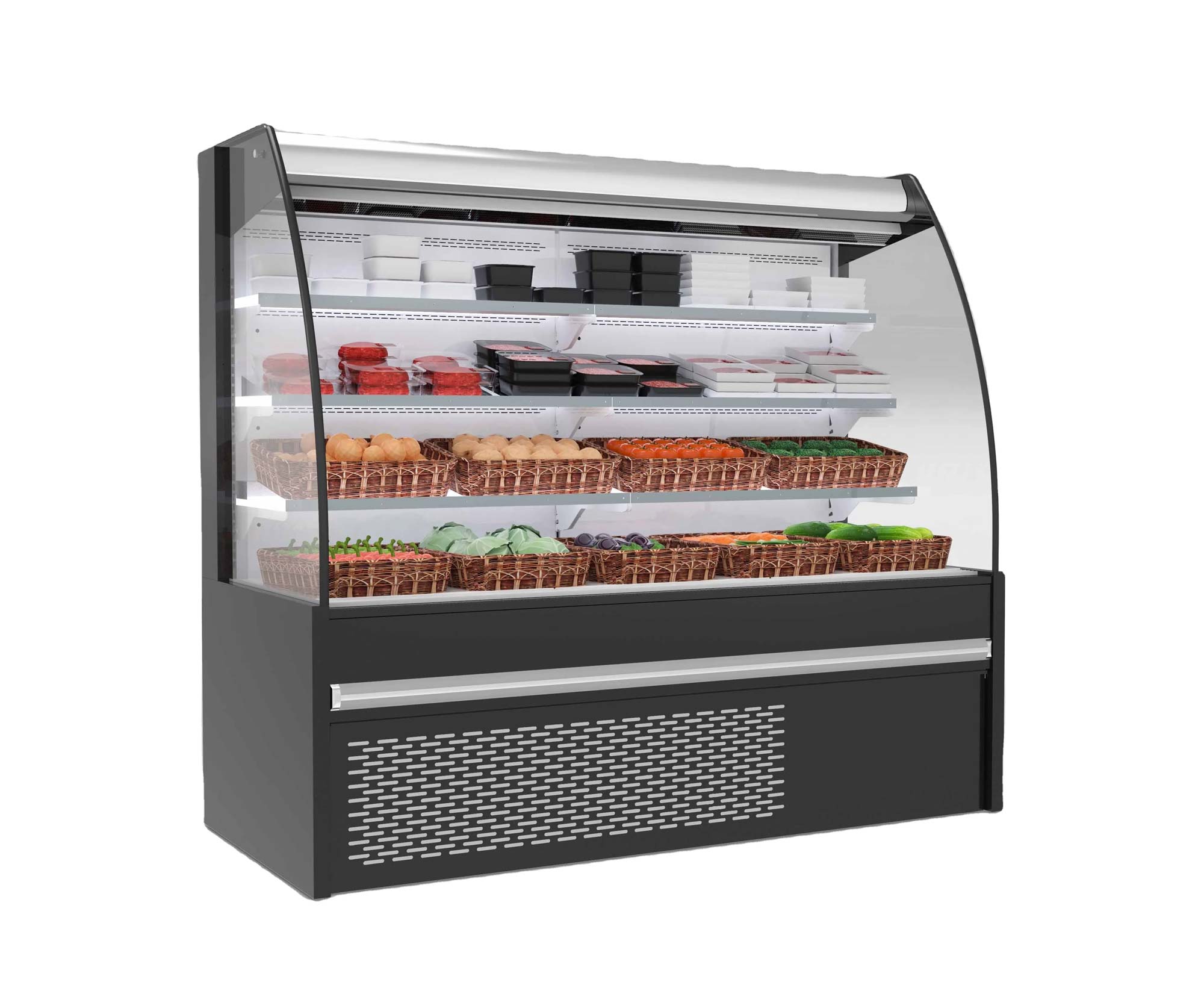
Polyurethane display refrigerator foam
After-sales services
We never leave you
on your own afterwards either
What is polyurethane coating?
Polyurethane coating is a high-performance protective layer produced from the reaction between polyols and isocyanates. It forms a tough, elastic, and resistant film that adheres strongly to various surfaces such as metal, wood, concrete, and plastic. This versatile coating has become one of the most popular solutions in industrial, automotive, and construction applications, where both durability and aesthetic appearance are critical.
Unlike traditional coatings, polyurethane coatings provide a unique balance of flexibility, hardness, and resistance to chemicals, UV radiation, and mechanical wear. They are often used as topcoats to enhance the lifespan and appearance of materials while protecting them from corrosion, abrasion, and environmental degradation.
As a result, the topic under discussion in this article will be the characteristics, advantages, and applications of polyurethane coatings in detail.

Advantages of polyurethane coating
The main advantage of polyurethane coating is its exceptional durability and protective performance. It has excellent resistance to chemicals, solvents, and abrasion, making it ideal for harsh industrial conditions. The coating also maintains gloss and color stability under exposure to sunlight and extreme temperatures, this ensures us that aesthetic appeal won’t be decreased over time.
Moreover, polyurethane coatings are known for their elasticity and impact resistance. They expand and contract with temperature changes without cracking or peeling. Their great adhesion to a wide range of substrates and compatibility with other coatings (such as epoxy primers) make them an excellent choice for multi-layer protective systems.
Types of polyurethane coating
Polyurethane foam coatings can be categorized into two main ways, by their curing system and by their mechanical composition.
1. Based on curing system
One-component (1K) polyurethane coatings:
These coatings cure by reacting with moisture in the air. They are easy to apply and suitable for projects where fast and easy application are important.
Two-component (2K) polyurethane coatings:
2K systems are produced by a chemical reaction between a polyol and an isocyanate component. They form a harder, more durable layer with excellent chemical and mechanical resistance. As a result, they are considered as the preferred option for industrial and automotive applications.
2. Based on mechanical composition
Flexible polyurethane coatings:
These coatings are somehow elastic and are ideal for surfaces exposed to movement, vibration, or thermal expansion, such as roofs, bridges, and flexible substrates.
Rigid polyurethane coatings:
These systems create a harder, more impact- and abrasion-resistant surface. They’re used where superior hardness and structural integrity are required for example, in machinery, metal equipment, or industrial flooring topcoats.
Additionally, polyurethane coatings can be solvent-based or water-based. Solvent-based systems offer faster curing and excellent adhesion, while water-based polyurethanes are environmentally friendly, low in VOCs, and preferred for indoor and green applications.
Physical and chemical properties of polyurethane coating
Polyurethane coatings are characterized by a unique combination of physical and chemical properties. Physically, they offer excellent abrasion resistance, elasticity, and tensile strength. The cured layer is dense and uniform, providing a smooth, uniform surface finish that resists scratches and mechanical wear.
Chemically, polyurethane coatings exhibit great resistance to oils, acids, fuels, and cleaning agents. They form a stable polymer network that maintains integrity even under high humidity and temperature fluctuations. The coating’s UV stability prevents yellowing and chalking over time, which is particularly valuable for outdoor applications such as bridges, pipelines, and vehicles.
In other words, the UV stability of polyurethane coatings means they can withstand long-term sunlight exposure without losing their original color, gloss, or surface appeal. This resistance to yellowing and chalking keeps coated surfaces looking new and prevents degradation, making polyurethane coatings a dependable choice for outdoor and high-exposure environments.
Applications of polyurethane coating in various industries
Polyurethane coatings are extensively used in the construction industry due to their exceptional durability, adhesion, and resistance to abrasion and chemicals. They form a seamless and protective layer on concrete, metal, or wooden surfaces, making them ideal for a wide range of architectural and structural applications. In commercial buildings, polyurethane coatings are commonly applied to interior and exterior floors to protect against moisture and environmental wear while maintaining an elegant, glossy appearance.
In parking structures, polyurethane coatings are so popular for their wonderful mechanical strength and flexibility. They create tough yet slightly elastic surfaces that resist tire abrasion, chemical spills, and temperature changes.

These coatings can extend the service life of concrete substrates, and provide a smooth, dust-free, and easy-to-clean finish, essential for high-traffic areas. Similarly, hospitals, restaurants, and educational facilities benefit from polyurethane flooring systems because of their hygienic, seamless, and chemical-resistant properties. Such coatings prevent bacterial growth, withstand frequent cleaning with disinfectants, and maintain their appearance even under continuous use.
In addition, polyurethane coatings are often chosen for bridges and industrial floors, where both strength and flexibility are required to tolerate heavy loads and dynamic stress. Also, due to their versatility, polyurethane coatings can serve as both protective and decorative layers in various areas.
How to use polyurethane coating?
Applying polyurethane coating requires proper surface preparation and exact mixing ratios, especially in two-component systems. The substrate must be clean, dry, and free from grease, dust, or rust. Priming may be necessary to enhance adhesion and improve surface uniformity.
For 2K polyurethane coatings, the polyol and isocyanate components should be mixed thoroughly before application, usually in a specified ratio provided by the manufacturer. Application methods include brushing, or rolling, depending on the surface type and desired film thickness. After curing, the coating forms a seamless, durable layer that ensures long-term performance and protection.
Buying polyurethane coating materials from Iran
Iran has become a reliable supplier of polyurethane raw materials, offering high-quality polyols and isocyanates at competitive prices. Among the key manufacturers, Imen Polymer Chemie stands out for its advanced production capabilities and strong technical expertise in developing polyurethane systems for coatings, adhesives, and foams.
With more than twenty years of expertise in polyurethane industry, we provide tailored solutions for various industries. Our polyurethane coating materials have excellent mechanical properties, weather resistance, and consistent quality that make them suitable for both domestic use and international export. Also, two-component systems come in two types: tough and elastic coating.
Why choose Imen Polymer Chemie as your polyurethane partner?
Imen Polymer Chemie is a leading manufacturer and supplier of polyurethane raw materials in Iran, providing polyols and isocyanates of consistent high quality. We offer not only materials but also expert technical consultation to ensure our clients select the best formulation for their application. By working closely with customers, we help design coating systems that meet both performance and aesthetic requirements in different industries.
Our commitment to quality is far beyond the laboratory. Precise quality control measures, experienced R&D teams, and a focus on international standards guarantee that each of our products meets global expectations. Whether supplying coatings for industrial or commercial applications, Imen Polymer Chemie delivers reliable, high-performance polyurethane solutions with support and guidance for effective application and long-term success.
Conclusion
Nowadays, polyurethane coatings are considered as one of the most advanced and reliable solutions for surface protection and finishing. Its combination of strength, flexibility, and resistance to environmental stress makes it ideal for industrial, automotive, and architectural applications. Whether used as a topcoat or a standalone layer, it enhances the durability, appearance, and longevity of surfaces.
For businesses looking for high-quality polyurethane coating materials, we are a trusted Iranian manufacturer committed to innovation, quality assurance, and technical support. By choosing us, customers receive expert guidance and high-quality polyurethane systems designed to meet modern performance standards in global markets.


